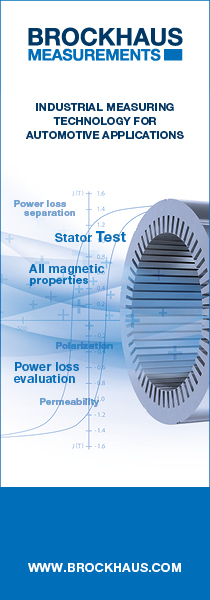Updated 13.11.24
Wifi Details
ctmcorp
corp379ctm
| In any design project tools, teaching, and CAD will only take you so far. But in all elements of design, there are many additional aspects which a successful designer guesstimates to start with or they ‘just know’ what to do with to complete the project.
As the design iterates, initial assumptions can be tested numerically/analytically or reinforced by gethering additional information. The effect of the assumptions can be gauged in the electromagnetic and thermal models. This workshop will talk about some of these additional factors, discussing and advising on how to fill the gap between the tools, etc and a successfully completed design. VENUECoventry Transport Museum Millennium Place, Hales Street, Coventry CV1 1JD TRAVELwhat3words Coventry Museum entrance location ///spring.most.soak By Car: Coventry is close to the M1/M6/M40/M42. Follow signs to city centre and take junction 1 or 2. As a city centre attraction there is no parking available at the Museum itself however, city centre pay and display car parks are all within walking distance. The nearest car parks to the Museum are Bishop Street (CV1 1JN), and Belgrade Plaza (CV1 4AJ). Click here for further details about car parks around the Museum. By Rail: There are excellent links to London Euston via London Northwestern Railway. London Northwestern Railway offers direct services from major cities, such as London and Birmingham to Coventry Rail Station. The Museum is a 15-minute walk from Coventry Rail Station. Buses to the City Centre from the railway station stop near the Museum. Downloadable maps are available from the Visit Coventry & Warwickshire website. By Bus: Most buses stop at Pool Meadow bus station or on Trinity Street, both of which are a 2 minute walk from the Museum. Most bus services in Coventry and the surrounding areas are operated by National Express. Use their interactive bus journey planning tool to get to and from the museum. Coventry has a Park & Ride service, which has a stop-off point at the Junction of Corporation Street and Burges, which is very close to the Museum. The route operates from Coventry’s War Memorial Park situated on the Kenilworth Road/ A45. Find out more about Coventry’s Park & Ride service. By Foot & Bicycle: Coventry Transport Museum is close to the National Cycle Network. Cycle parking is available outside the front of the Museum. West Midlands Cycle Hire have bicycle docks outside the front of the Museum where you are able to hire or dock a bike for your journey. ACCOMMODATIONOn this occasion, we do not have a special rate with a hotel, however we would recommend staying at the Telegraph Hotel. To book please visit their website: 157 Corporation St, Coventry CV1 1GU DRAFT PROGRAMMEThe event will run from 09:00-17:00 (UK time). DIETARY REQUIREMENTSPlease let us know as soon as possible if you have any dietary requirements we need to be aware of. DRESS CODEThe dress code for the event is business attire / smart casual CONTINUING CONTACT / GDPRPlease note, by providing contact details during registration, you authorise us to
Please let us know at enquiries@ukmagsoc.org at any time if you do not wish to be contacted in this way. Also, we can remove you from our contact schedule at any point in the future. We will also be taking photos at the event. If you do not wish to have your photo taken during the event, please contact events@ukmagsoc.org PHOTOGRAPHYWe will also be taking photos at the event. If you do not wish to have your photo taken during the event, please contact events@ukmagsoc.org
Sponsors
|





